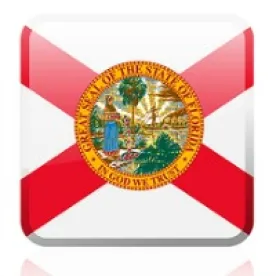With over 60 percent of Florida’s COVID-19 cases identified in southern Florida, Governor Ron DeSantis passed new measures in an effort to limit the continued spread of the virus. On March 30, 2020, Governor DeSantis passed Executive Order (EO) No. 2020-89, restricting public access in Miami-Dade, Monroe, Palm Beach and Broward Counties to businesses and facilities deemed non-essential. The March 30, 2020, order also prohibits counties from instituting curfews restricting travel to and from the essential establishments. EO 20-89 comes on the heels of executive orders 2020-69 through 2020-72, which expanded the scope restrictions for bars, pubs, nightclubs, and other gatherings at restaurants and beaches.
Two days later, on April 1, 2020, Governor DeSantis issued a statewide stay-at-home order to contain and combat the spread of COVID-19. Executive Order No. 2020-91 orders all individuals, particularly “senior citizens and individuals with significant underlying medical conditions,” to shelter at home and take precautions to limit their exposure to COVID-19. EO 20-91 also orders “all persons in Florida [to] limit their movements and personal interactions outside of their home to only those necessary to obtain or provide essential services or conduct essential activities,” though the order explicitly “encourages individuals to work from home” and all business to provide delivery, carry-out, or curbside services “to the greatest extent practicable.”
EO 20-91 defines “essential services” consistent with the United States Department of Homeland Security’s Cybersecurity and Infrastructure Security Agency (CISA) Guidance on the Essential Critical Infrastructure Workforce, most recently updated on March 28, 2020. CISA identifies the following categories as “essential critical infrastructure workers:
-
Chemical
-
Commercial Facilities
-
Communications
-
Critical Manufacturing
-
Dams
-
Defense Industrial Base
-
Emergency Services
-
Energy
-
Financial Services
-
Food and Agriculture
-
Government Facilities;
-
Healthcare and Public Health
-
Information Technology
-
Nuclear Reactors, Materials, and Waste
-
Transportation Systems
-
Water and Wastewater Systems
“Essential services” further encompasses the businesses and activities designated by EO 20-89, with specific reference to the list of essential businesses and services propounded by Miami-Dade County. Miami-Dade County Emergency Order 07-20 and its subsequent amendments provides the following non-exhaustive list of retail and commercial businesses identified as “essential”:
-
“Healthcare providers.” This includes a longer list of medical professionals, including dentists’ offices, rehabilitation facilities, and mental health professionals
-
“[S]tores that sell groceries and also sell other non-grocery products, and products necessary to maintaining the safety, sanitation, and essential operations of residences,” including produce stands and convenience stores
-
“Food cultivation, including farming, livestock, and fishing
-
Businesses providing “necessities of life for economically disadvantaged or otherwise needy individuals”
-
“[M]edia services,” including newspaper and radio
-
“Gas stations” and auto-related services, including “new and used automobile dealerships” provided they follow social CDC guidelines
-
“Banks and related financial institutions”
-
“Hardware stores”
-
“Contractors and other tradesmen” providing services “necessary to maintaining the safety, sanitation, and essential operation of residences and other structures”;
-
“[M]ailing and shipping services”
-
“Private colleges, trade schools, and technical colleges” as needed to “facilitate online or distance learning”
-
“[L]aundry service providers”
-
“Restaurants and other facilities preparing and serving food, but subject to the limitations and requirements of Emergency Order 3-20”
-
“Businesses that supply office products”
-
“Businesses that supply other essential businesses with the support or supplies necessary to operate, and which do not interact with the general public”
-
“Businesses that ship or deliver groceries, food, goods, or services directly to residences”
-
“[T]ransportation services,” like taxis and trains
-
“Home-based care for seniors, adults, or children”
-
“Assisted living facilities, nursing homes, and adult day care centers, and senior residential facilities”
-
“Professional services” as needed to comply with “legally mandated activities,” like , legal or accounting services
-
“Landscape and pool care businesses”
-
“Childcare facilities” facilitating exempted employees’ continued work as permitted. The order notes childcare facilities must comply with the following procedures:
-
Limited to groups of 10 or fewer individuals
-
Children and providers should not change from one group to another
-
If multiple groups of children, these groups should be kept in separate rooms and shall not interact with each other
-
-
“Businesses operating at any airport, seaport, or other government facility, including parks and government offices”
-
“Pet supply stores”
-
“Logistics providers, including warehouses, trucking, consolidators, fumigators, and handlers”
-
“Telecommunications providers,” including providers of home telecommunications
-
“Provision of propane or natural gas”
-
“Office space and administrative support necessary to perform any of the above listed activities”
-
“Open construction sites”
-
“Architectural, engineering, or land surveying services”
-
“Factories, manufacturing facilities, bottling plants, or other industrial uses”
-
“Waste management services”
-
“Any business that is interacting with customers solely through electronic or telephonic means, and delivering products via mailing, shipping, or delivery services”
-
“[M]arina services only as set forth in Emergency Order 07-20”
-
“[C]ommercial lodging establishments and temporary vacation rentals”
-
“Veterinarians and pet boarding facilities”
-
“Mortuaries, funeral homes, and cemeteries”
-
“Firearm and ammunition supply stores”
-
“Businesses providing services to any local, state, or Federal government… pursuant to a contract”
EO 20-91 also defines the following as “essential activities”:
-
“[R]eligious services”;
-
“[R]ecreational activities ( consistent with social distancing guidelines),” including walking and hunting;
-
Pet care;
-
“Caring for or otherwise assisting a loved one or friend.”
Section 3 of EO 20-91 clearly rejects “social gathering in a public space” as a qualified essential activity. This order also charges local jurisdictions with “ensur[ing] that groups of people greater than ten are not permitted to congregate in any public space.” EO 20-91 further notes that it supersedes any conflicting definition of an “essential service” or “essential activity” by a local government, but does not supersede any other COVID-19 Executive Order.
EO 20-91 notes that the lists of “essential services” and “essential activities” will be maintained and updated by the State Coordinating Officer, “in close coordination with the State Health Officer”. The list of “essential services” will be available on the Division of Emergency Management webpage and the Florida Department of Health website. EO 20-91 is in effect beginning 12:01 am on April 3, 2020 until April 30, 2020, with the possibility for renewal.




 />i
/>i

